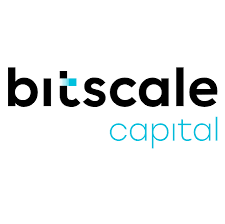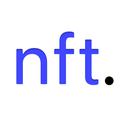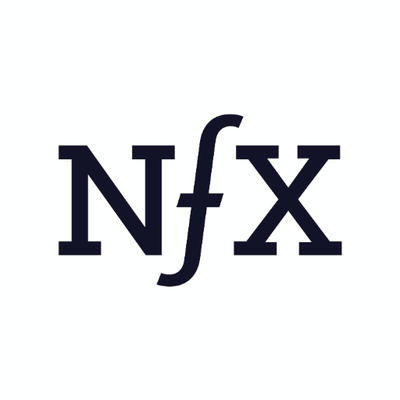
by @Guaaronnnn
editor @FriedWagyuu
Part I. Tornado Cash’s Sanctions
On Monday, US Treasury Department banned all Americans from using the decentralised crypto-mixing service Tornado Cash. The office of Foreign Assets Control (OFAC) added Tornado Cash to its Specially Designated National (SDN) list — a list of blacklisted people, entities and cryptocurrency addresses.
According to the Treasury Department, Tornado Cash has been a key tool for the Lazarus Group, a North Korean hacking group tied to the $625 million March hack of Axie Infinity’s Ronin Network, to launder stolen crypto funds.

How does Tornado Cash Work?
Tornado Cash is a decentralized crypto mixer — a service that mixes different streams of crypto transfers and output them so the origin of the tokens can be hardly identified. The service’s intention is to improve the anonymity of transactions, as it makes crypto harder to trace. Tornado Cash runs based on Ethereum network and zkSNARKs technology. The users can break on-chain traceable activities of ETH or ERC20 token transfers and withdraw the tokens to other addresses without exposing the original sender. Before Tornado Cash, there are privacy solutions like Monero and ZCash. However, both projects above runs on their own chains and they cannot cover privacy activities on other blockchains.
When a user deposits assets into Tornado Cash, the smart contract generates a secret hash — which is used to identify the real depositor and prove that he/she owns the assets without exposing the public address. The smart contract work as a pool that mix all deposited assets. Once the funds are withdrawn by a new address a few hours after, the on-chain link between the source & the destination is broken. Tornado Cash became popular due to the rise of crypto hacks and it is the go-to place for hackers to store their stolen assets.
How Decentralised the Current Blockchain is?
Crypto mixers are a tool that can be used to protect user privacy and make cryptocurrency transactions anonymous. However, some mixers are used as a way to launder stolen funds. The recent sanction against Tornado Cash from the US Treasury rang a bell in the industry. It is because after Tornado Cash was added to the SDN list, GitHub, USDC, Aave, dYdX, Infura, Alchemy, and many other services followed to sanction. Some of them are the foundation of the Ethereum ecosystem, which makes people wonder how decentralised the current blockchain is. Below are the impacts in different fields:
Stablecoin
Stablecoin is critical to the whole blockchain ecosystem. The centralised stablecoin (USDT & USDC) issuers are subject to compliance with legal obligations. Both together have taken around 70% of the stablecoin market. Although there are decentralised stablecoins like DAI and FRAX, a large number of assets behind them are still centralised USDC. There is a potential risk once the government request to blacklist or freeze more people and entities. For example, if MakerDAO is affected, most DAI’s debt (USDC) can be locked by Circle, with brings centralized risks to the decentralised stablecoin.
Infrastructure Service Provider
On-chain protocols are decentralised and everyone is able to access and interact. But the technical service that connects users to protocols are centralised. In this sanction, infrastructure service providers like Infura and Alchemy stopped supporting requests to send transactions to Tornado Cash pools.
Software Development Platform
Tornado Cash is an open-sourced protocol, the code is stored and shared on GitHub. After the sanction, GitHub disabled accounts tied to Tornado Cash.
Ending Thoughts
The Tornado Cash sanction shows that Ethereum’s current stage heavily relies on centralised services and there is a very long way to go to reach full decentralization. To minimise the impact from the governments, people have to think about how to push decentralization further, especially on infrastructure and code repositories. We think sanctions will only make blockchains stronger and more censorship resistant in the long run.
Part II. Market Updates
The SEC issued a proposal that would require hedge funds to report their exposure to cryptocurrency
Securities and Exchange Commission (SEC) and Commodity Futures Trading Commission (CFTC) voted on a proposal that requires private funds to report crypto exposures.
Netherlands Arrests Suspected Developer of Sanctioned Crypto-Mixing Service Tornado Cash
A 29-year-old developer suspected of being involved in the Tornado Cash protocol that’s been sanctioned by the U.S. was arrested in Amsterdam on Friday. The developer was Alexey Pertsev, confirmed by his wife.
BlackRock Launches Spot Bitcoin Private Trust
The $10 trillion asset manager, BlackRock, has launched a spot Bitcoin private trust to give its U.S.-based institutional clients direct exposure to the world’s most popular cryptocurrency.
Circle freezes USDC funds in Tornado Cash’s US Treasury-sanctioned wallets
Circle, the company behind the USDC stablecoin blacklisted wallet addresses controlled by Tornado Cash following the US Treasury sanctions against the crypto mixer, Tornado Cash.
MakerDAO founder says it’s ‘almost inevitable’ DAI will abandon USD peg
Rune Christensen, the co-founder of MakerDAO, has stated that the DAI stablecoin could exit its USD peg by eliminating all of its USD Coin (USDC) exposure. DAI stablecoin is currently backed by 32% of USDC. The statement is because of recent US Treasury sanctions against Tornado Cash.
Part III. Fundraising News
FairXyz — Minting Service
Raised $4.5 million in a funding round led by Eden Block. Other backers include OpenSea, NFX and Firstminute Capital.
Cashmere — Enterprise Wallet
Raised $3m at a $30m valuation in the seed round. Investors include Coinbase Ventures, FBG Capital, and YCombinator.
MetaverseGo — A Mobile Gaming Platform
Raised $4.2m in seed round led by Galaxy Digital. Other backers include Delphi Digital, Dragonfly Capital, Mechanism Capital, Infinity Ventures Crypto, Shima Capital, Com2uS, Akatsuki, Ascensive Assets, BitScale Capital, Yield Guild Games, and others.
Injective — DeFi-Focused Layer 1 Blockchain
Raised $40 million in the funding round led by Jump Crypto. BH Digital also participated in the round.
CreaterDAO — Decentralized Investment Community
Raised $20m seed round led by a16z and Initialized Capital. Other investors include Liquid 2 Ventures, M13, Audacious Ventures, 6th Man Ventures, Abstract Ventures, SV Angel, Hack VC and others.
Reference
https://docsend.com/view/b9punqc4qnk2i2dm
https://www.coindesk.com/learn/are-crypto-mixers-legal/
https://medium.com/coinmonks/analyzing-tornado-cash-transactions-3d8d6b9731fb
https://www.certik.com/resources/blog/7wuz4yIiH6ULQs6894WfTW-what-is-tornado-cash
About TKX Capital
Website: TKX.Capital
Twitter: @TKXCAPITAL
Build with us: hi@tkx.capital

【免责声明】市场有风险,投资需谨慎。本文不构成投资建议,用户应考虑本文中的任何意见、观点或结论是否符合其特定状况。据此投资,责任自负。



































































